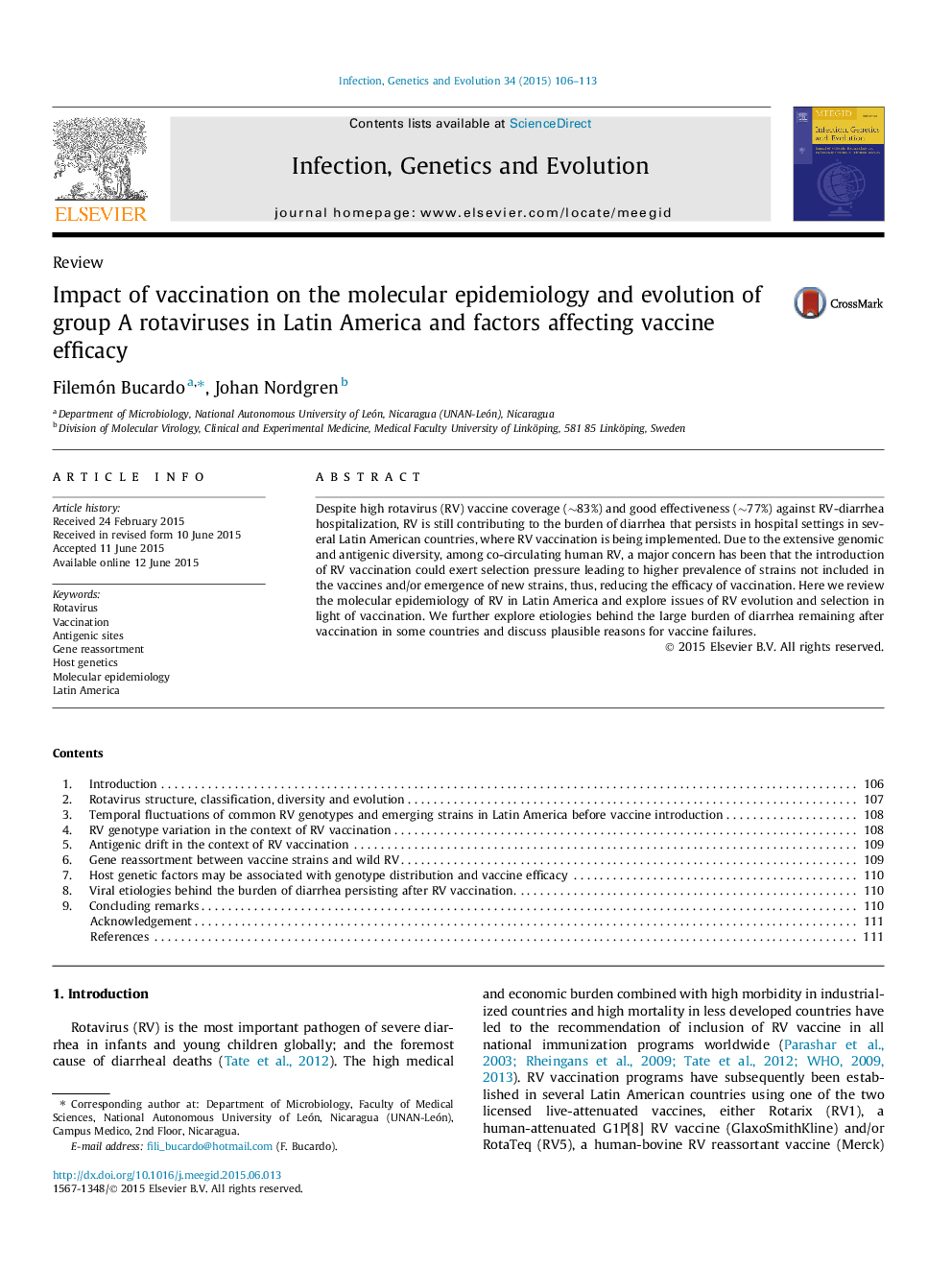| Article ID | Journal | Published Year | Pages | File Type |
|---|---|---|---|---|
| 5908953 | Infection, Genetics and Evolution | 2015 | 8 Pages |
â¢Impact of rotavirus vaccination on the molecular epidemiology and evolution of wild type rotaviruses in Latin America.â¢Plausible factors contributing to vaccine failures (e.g., host genetics).â¢Change in virus etiology of acute gastroenteritis in children following universal rotavirus vaccination.
Despite high rotavirus (RV) vaccine coverage (â¼83%) and good effectiveness (â¼77%) against RV-diarrhea hospitalization, RV is still contributing to the burden of diarrhea that persists in hospital settings in several Latin American countries, where RV vaccination is being implemented. Due to the extensive genomic and antigenic diversity, among co-circulating human RV, a major concern has been that the introduction of RV vaccination could exert selection pressure leading to higher prevalence of strains not included in the vaccines and/or emergence of new strains, thus, reducing the efficacy of vaccination. Here we review the molecular epidemiology of RV in Latin America and explore issues of RV evolution and selection in light of vaccination. We further explore etiologies behind the large burden of diarrhea remaining after vaccination in some countries and discuss plausible reasons for vaccine failures.
